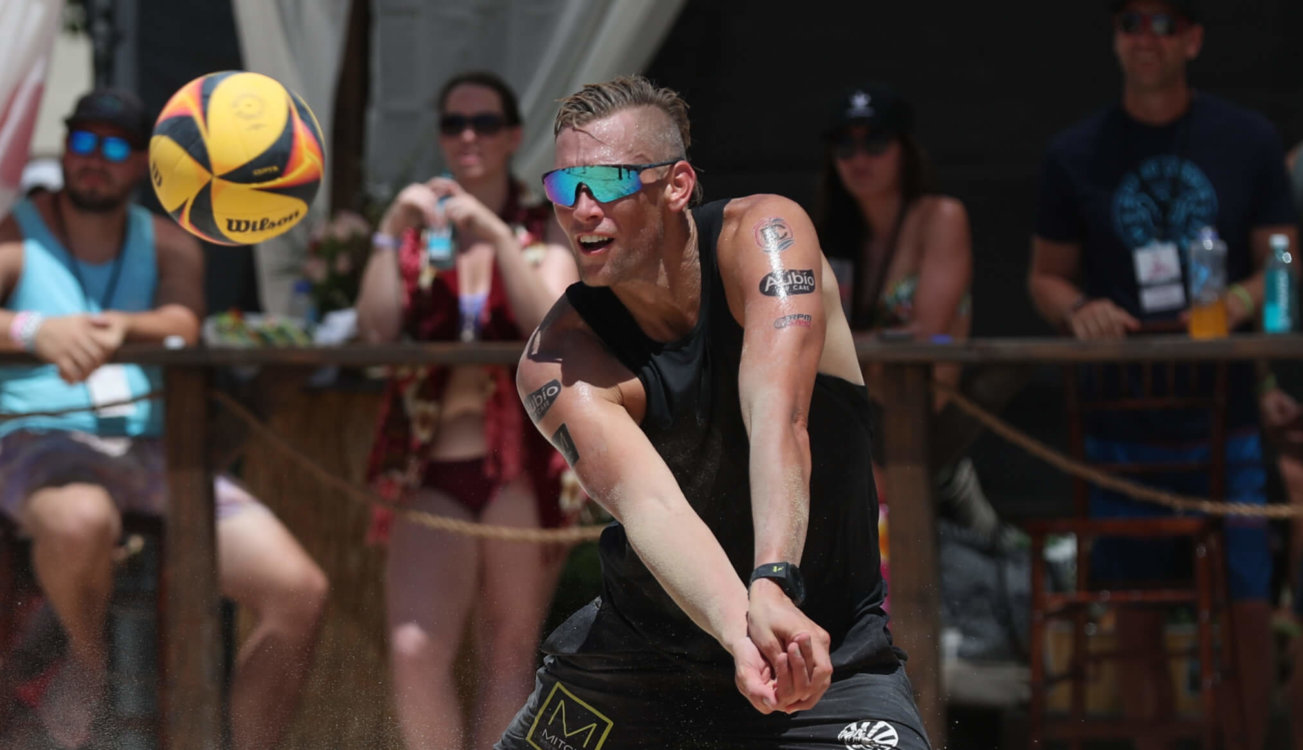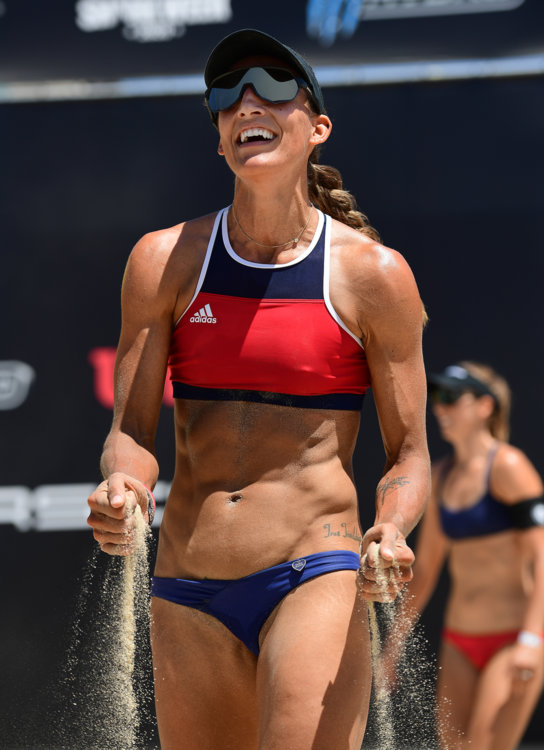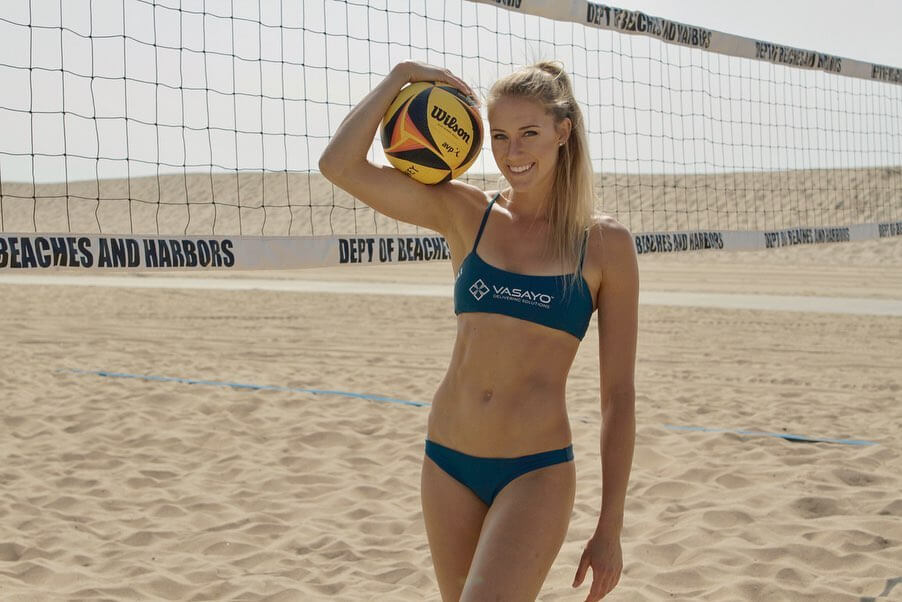When training to be a top athlete, practice is just the tip of the iceberg. Weight training regimens, conditioning schedules, off days, film sessions, and ample rest make up the ingredients in the recipe for success. But (in my humble opinion) the most critical aspect of performance is nutrition.
As with most aspects of an athlete, nutrition is unique to the individual. What works for Rich Lambourne likely doesn’t work for Katie Spieler (though Katie’s daily workload rivals that of a professional bodybuilder + a small business owner, so maybe their needs are more similar than I think).
I’m a little obsessed with nutrition. I got certified years ago in the subject, love to teach healthy cooking to friends and roommates, and eat very clean myself. So I’m always interested to hear what works for other athletes. Especially ones I look up to.
One of the first I thought of was Casey Patterson. This walking legend is in his 40s and still in peak shape. I wondered if his lack of alcohol consumption kept him young (answer: duh, yes). And I wanted to know how his diet changed over his nearly two decades in the sport.

CP – “Nutrition for me changed drastically in 2016. My whole life, I had issues staying awake, fatigue, joint inflammation, and stomach problems. I just thought it was from training so much and impact. I found out later it was an autoimmune disease triggered by gluten, dairy, sugar, and a number of other things. Because of my limitations with diet, I was forced to eat super clean. Luckily I caught my disease at a point where I could manage it by eliminating foods.
When I travel, I have a carry-on suitcase full of plant-based foods, bars, dried fruit, nuts, and protein. Maintaining a consistent amount of calories is hard because most bars and travel-friendly foods have more calories than real food. So just being conscious of that was big for me, too.
In most tournaments, I have to bring all my food, which gets tiring. But I can’t chance eating something I can’t have due to pure hunger.”
Autoimmune diseases, food allergies, and sensitivities make life on the road challenging. I know many athletes (including myself) who steer clear of gluten, dairy, soy, meat, sugar, or other food items. And just think of all the stuff you eat on the road that contains those ingredients. It’s tough.
In my nutrition quest, I also wanted to check in with Emily Stockman. She’s visibly shredded, yes. But I’ve also been to her apartment, and we ate cured meats and cheeses and drank wine, so I know she doesn’t always “play by the rules.” So what’s the balance?

ES- “I like to mix it up. Strict dieting is against my religion – just kidding! However, I’m not a big meal prepper because I get burned out on the same thing. In the morning, I like to have a cup of coffee and then usually overnight oats, avocado toast, or protein pancakes. Really anything that includes complex carbs, protein, and fat to kick off the day. I also probably eat more cereal than I should, but it’s quick, easy, and delicious, and the sugar rush helps me push through those brutal workouts during busy days.
For dinner, it usually consists of some sort of grain, veggies, complex carbs, and/or a protein. I’m a big fan of portion control rather than cutting something completely out, I feel like it helps to curb the craving. That being said, I do keep my alcohol consumption in check. But I don’t see anything wrong with enjoying a glass of wine or beer with dinner, unless I’m competing the next day, because it definitely affects my quality of sleep.
On top of all that, it’s extremely important to get proper nutrients post-workout, which usually consists of a protein shake with whole fruits and vegetables, or some sort of powder supplement with all the nutrients if I’m short on time. My diet stays fairly consistent throughout the year, so it’s not really hard to transition in and out of season, but it definitely takes some creativity and self-control during travel. Especially when the food choices are limited or non-conducive to high levels of competition. “
Balance and intuitive eating – easier said than done, but in all the varying nutrition philosophies and diets, intuitively eating a variety of whole foods seems to be the most universally accepted baseline.
For my last athlete inquiry, I went for Jessica Gaffney. Recently, a friend raved about a dinner Jessica had made. I had to learn more about her cooking prowess. She’s also super busy, practicing and lifting in the morning and working late at a fancy restaurant at night. I knew she’d have a great love for food but also value healthy whole ingredients. I wasn’t wrong.

JG – “From a young age, I would throw on an apron and help my mom or aunties in the kitchen and learned how to cook from them. Home-cooked food for me means family is together, memories are being made, and the entire process is more enjoyable when love for good food and flavor is involved. I cook most of my meals and honestly find it cheaper and easier than eating every meal out because I always cook for ten people. Cooking in bulk means leftovers!
I usually eat very well during the weekdays when I’m training, lifting, and working. But I enjoy the weekends by permitting myself a burger and fries or whatever my body is craving that day. I work in the food and beverage industry, so I’m surrounded by people who have such great knowledge about food and wine/alcohol pairings that it is a fun thing for me to experiment with when I cook new meals: wine + Italian food = my ideal weekend treat.
For most meals, I follow the guidelines of my plate being 1/2 veggies, 1/4 protein, and 1/4 carbohydrates. However, when my body asks me for a burger or chocolate – I don’t restrict that. I’ve found my body trusts that I will give it what she needs, and more times than not, that’s healthy, whole foods that energize me. “